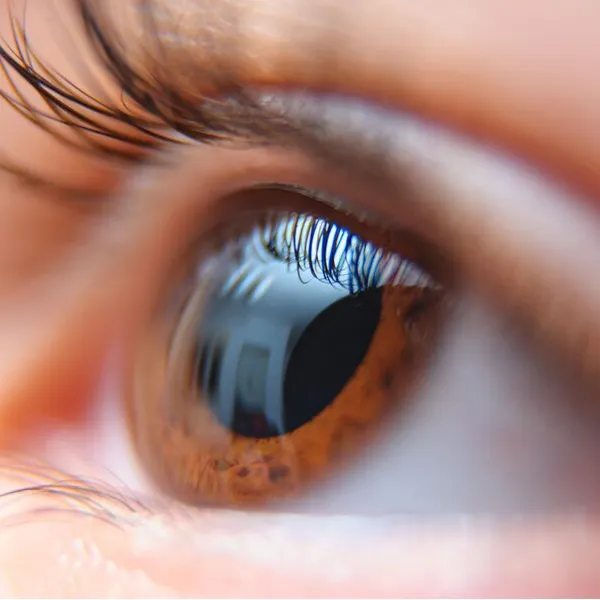
Get the Best Retina Surgery at Drishti Eye Hospital
Are you looking for top-notch retina treatment in Chandigarh? Look no further than Drishti Eye Hospital, a premier healthcare institution that offers a variety of ophthalmic services. With a staff of experienced and highly qualified retina doctors, we provide modern diagnostic and treatment solutions for a wide range of retinal problems. Our expert doctors are dedicated to delivering superior care for a variety of eye diseases, with a special emphasis on retinal health.
Call to ask any question +91-708-7219008

Dr. Ashok Gupta
(Chairman and founder)What are Retina & Uvea?
The retina is often likened to the eye’s “photographic film,” serving as its innermost layer at the back of the eye. Its primary role involves capturing and processing light that enters the eye, converting it into electrical signals transmitted to the brain through the optic nerve. This crucial function enables us to perceive the world around us, making the retina indispensable for vision.
On the other hand, the uvea is a composite structure consisting of the iris, ciliary body, and choroid. Positioned in the middle layer of the eye, the uvea serves various vital functions, including regulating light, aiding lens adjustment, and contributing to the overall health of the eye.
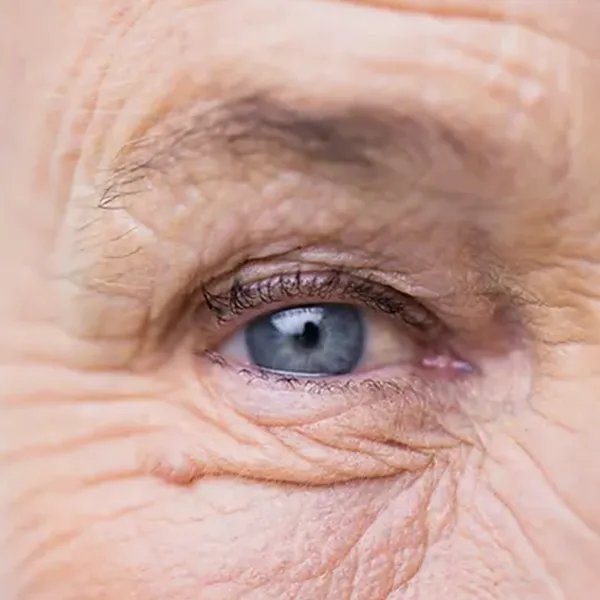
The Best Retina Specialist in Chandigarh
Drishti Eye Hospital stands out as a premier destination for comprehensive care in retina & uvea services, offering specialized expertise and advanced treatments including vitreoretinal surgery and vitrectomy surgery.
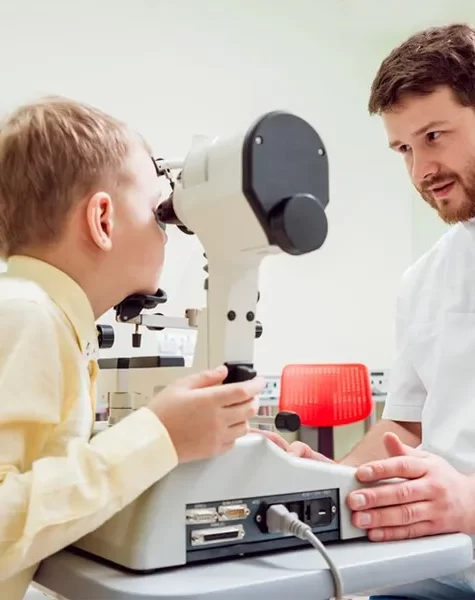
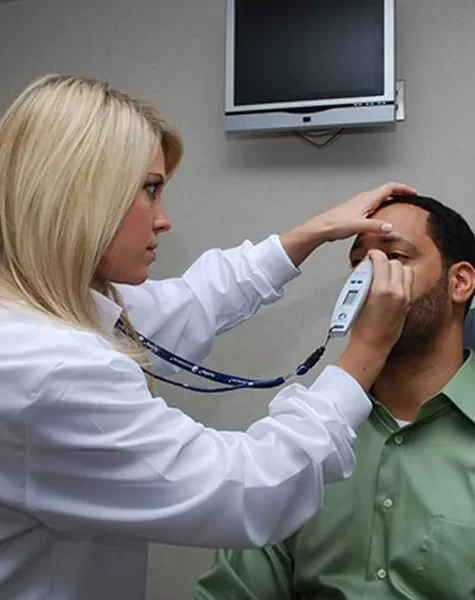
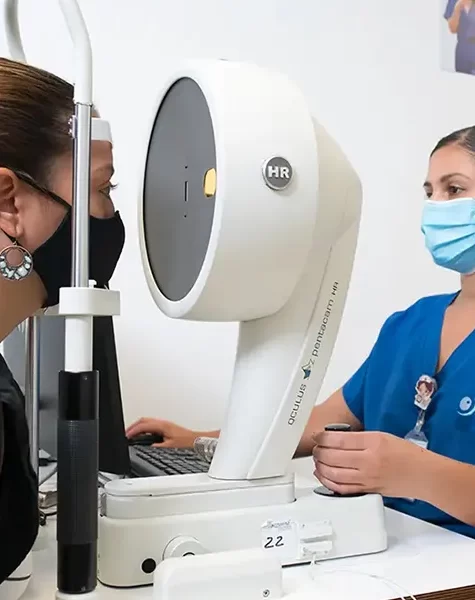
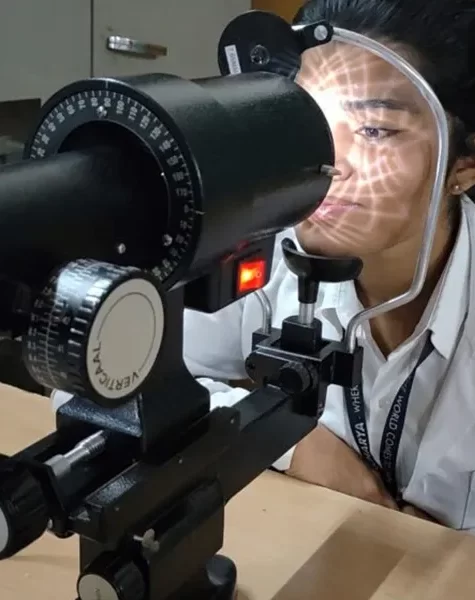
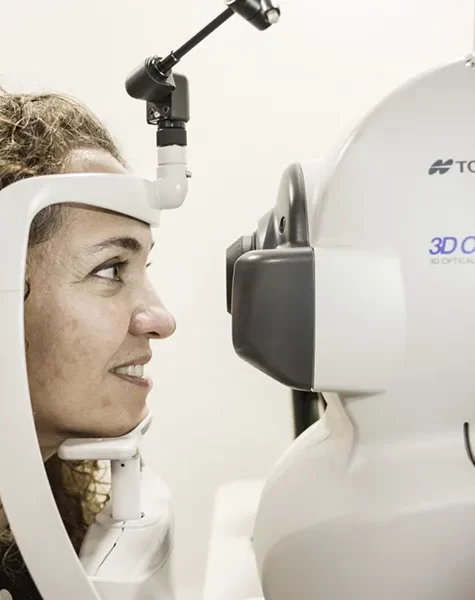
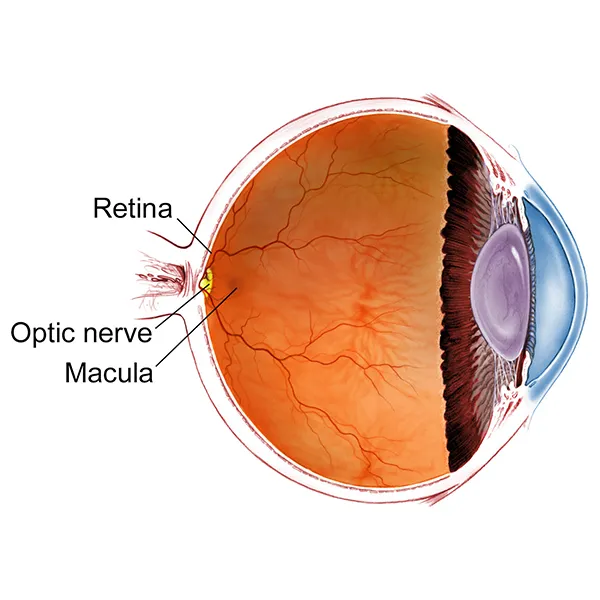
Various Eye Disorders Associated with Retina & Uvea
Retinopathy encompasses various ocular conditions affecting the delicate retina at the back of the eye. At Drishti Eye Hospital, we prioritize comprehensive eye care, acknowledging the significant impact of retinopathy, including specific forms like hypertensive and diabetic retinopathy, as well as their associations with conditions such as macular degeneration.
Moreover, Hypertensive retinopathy, stemming from high blood pressure, poses risks to retinal blood vessels and vision if left untreated. Our specialized team excels in identifying and managing these conditions while guiding patients toward healthier blood pressure management. Early detection and personalized retina treatment plans are our foremost concerns, making us a trusted destination for addressing retinopathy and its associated challenges.
Retinal detachment is a serious eye condition that necessitates immediate attention to prevent vision loss. When the retina detaches from its normal position, it loses functionality, leading to impaired vision. Detachment can occur due to various factors such as trauma, aging, or eye diseases. Often starting with small tears or breaks in the retina, detachment progresses if left untreated. Recognizing symptoms promptly and seeking medical attention is crucial for effective management.
Its treatment typically involves surgery aimed at reattaching the retina to its normal position. Various surgical techniques such as vitrectomy and photocoagulation may be employed depending on the case. Early detection and intervention are imperative for successful outcomes.
- Sudden flashes of light,
- Increased floaters
- The sensation of a curtain-like shadow over the visual field
Diabetes can weaken the tiny blood vessels at the back of your eye, causing them to leak fluid into or under the retina. In the beginning, you might not notice any changes, but as it progresses, it can lead to swelling in the retina, making your vision blurry or distorted. In severe cases, it might even cause the retina to detach. You might also notice abnormal blood vessels that can break and bleed. Early signs include seeing floaters, followed by sudden vision loss.
This is a thin layer similar to tissue that forms on the surface of the retina. It can tug on the retina, leading to distorted vision. Aging, inflammation, or retinal tears can trigger its formation.
A macular hole is a small opening in the center of the retina (macula). It can occur due to abnormal pulling between the retina and vitreous. Causes may include aging, unknown factors, prolonged swelling of the macula, or eye injuries. Typically, it results in a gradual decline in vision.
ARMD occurs when the central part of the retina deteriorates, causing blurred central vision or blind spots in the middle of your visual field. Aging is the main factor behind its development.
This is an inherited condition that gradually harms the outer edges of the retina before affecting central vision. Night blindness is often an early sign, and it can be associated with other health issues in both children and adults.
This condition, which can lead to blindness, is observed exclusively in premature babies with low birth weights. Early screening within 30 days of birth is vital to prevent blindness.
It involves inflammation and swelling in the middle layer of the eye, known as the Uvea. While the exact cause is often unclear, it can be linked to autoimmune diseases or infections. Symptoms can vary depending on which part of the eye is affected, but they may include eye pain, redness, blurred vision, floaters, or flashes of light. In severe cases, it can result in retinal detachment or the formation of an epiretinal membrane.
Treatment options for these disorders range from medications to surgical intervention, depending on the underlying cause and affected area. At Drishti Eye Hospital, we offer top-notch care with an experienced team and cutting-edge equipment for uvea treatment or uvea surgery. So, if you looking for a uvea specialist in Chandigarh, do consider us for the best treatment.
Drishti Eye Hospital should be your preferred choice
Choose Drishti Eye Hospital for unparalleled expertise, cutting-edge technology, and patient-centric care in your retinal care journey. Your vision deserves the best, and we are here to ensure it remains optimal. Trust us with your retinal care needs.
Expertise
Patient-Centric Care
Cutting-Edge Technology
Proven Track Record
Comprehensive Solutions
FAQs
Several risk factors are associated with retinal disorders, including aging, smoking, diabetes, hypertension, eye trauma, obesity, and a family history of retinal diseases.
Recovery time from eye retina surgery can vary depending on the specific procedure performed, the extent of retinal damage, and individual healing factors. In many cases, initial recovery may take several weeks, during which patients may experience temporary vision changes, discomfort, or restrictions on activities. Full recovery and stabilization of vision may take several months. It's essential to follow post-operative instructions provided by the surgeon to optimize recovery outcomes.
Retinal inflammation, also known as retinitis, is typically treated with anti-inflammatory medications such as corticosteroids (administered orally, topically, or via injections), immunosuppressive drugs, or biologic agents. Treatment may also involve addressing any underlying conditions contributing to the inflammation.
Signs of retina problems may include sudden or gradual vision loss, distortion or blurring of vision, seeing flashes of light, floaters (spots or lines in the field of vision), shadow or curtain-like obstruction in vision, and changes in color perception. It's important to seek prompt medical attention if any of these symptoms occur.
After vitreoretinal surgery, typically done on an outpatient basis, your retina specialist will provide you with antibiotic and anti-inflammatory eye drops to use for several weeks. In general, vitreoretinal surgery is highly successful.
Vitrectomy surgery is utilized to address various eye disorders such as diabetic vitreous hemorrhage, retinal detachment, macular hole, proliferative vitreoretinopathy, endophthalmitis, removal of intraocular foreign bodies, epiretinal membrane, and more.
Other factors related to retinal detachment include previous eye surgeries, such as cataract surgery, the presence of lattice degeneration (areas of thinning in the retina), a history of retinal detachment in the other eye, and conditions like retinopathy or inflammatory eye diseases.
Unlike some tissues in the body, the retina cannot repair itself. Once the retina is damaged, it typically does not regenerate or heal on its own. However, certain treatments and interventions may help manage the effects of retinal damage and preserve remaining vision.
There are several types of detachment including:
- Rhegmatogenous: This is the most common type, characterized by a tear or break in the retina that permits fluid from within the eye to seep into the back of the retina, leading to vision loss in the affected area.
- Tractional: Scar tissue formation on the retina's surface pulls it away from the back of the eye, often occurring in individuals with diabetes.
- Exudative: Fluid accumulation beneath the retina without any tears in the retina itself, possibly due to aging, eye injury, inflammatory disorders, and other causes.
The duration of uveitis with treatment can vary depending on factors such as the underlying cause, severity of inflammation, and individual response to treatment. In many cases, with proper medical intervention, uveitis can be resolved within a few weeks to a few months. However, chronic or recurrent cases may require long-term management.
The nature and amount of the damage to the retina determine how it is treated. Options may include laser therapy, cryotherapy, vitrectomy (surgical removal of the vitreous gel), scleral buckling (a procedure to support the retina), intravitreal injections of medications, or retinal detachment repair surgery.
Other factors associated with retinal detachment include a family history of the condition, a history of retinal detachment in one eye, and diabetes.
Yes, untreated or poorly managed retina problems can potentially lead to vision loss and blindness, particularly if they involve severe retinal damage, detachment, or conditions affecting the macula.

